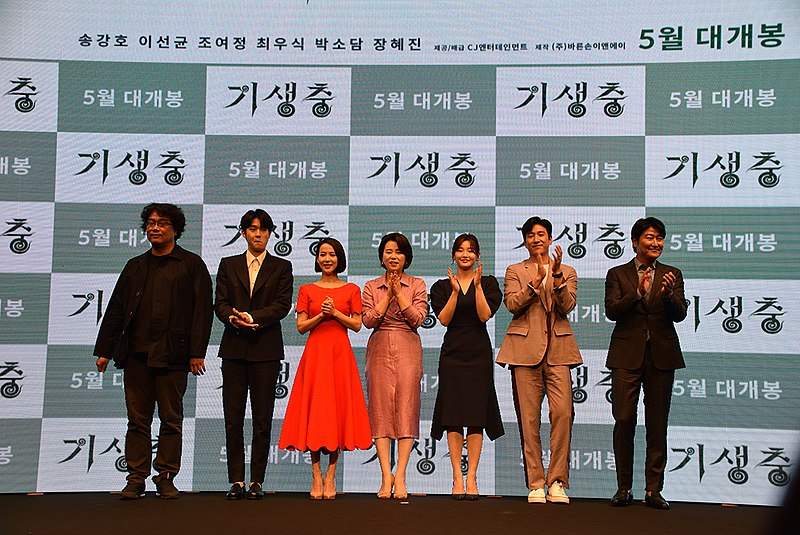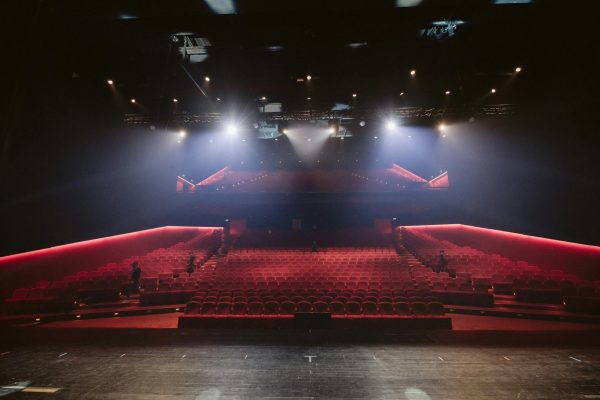Parasite (2019) Film Review
Recently, at the Oscars 2020, director Bong Joon Ho’s film “Parasite” won four awards, including Best Picture, best Director, best International Feature Film and best Writing. It is currently well-known for being the first non-English film to win Best Picture, and the first Korean film to be nominated for the International Feature Film awards category.
Bong Joon Ho is a highly reputed director in the Korean Film Industry, known for his especially satirical films. From the moment I knew that Bong Joon Ho was releasing a new film, I was enthralled. I remembered enjoying his other films, such as “Okja” and “The Snowpiercer”.
When I first watched the trailer of Parasite, I wasn’t at all let down. It was a typical “Bong Joon Ho style” trailer – conveying the general mood of the film, but not spoiling the plot of the movie.
The film is humorous, yet laughing carries with it a certain discomfort. Parasite is a story about two families with contrasting economic and social statuses. In the beginning of the film, we follow the Kim family, who lives in a small basement. We first see Ki-taek(Song Kang-ho) , an unemployed man along with his wife, Chung-sook(Chang Hyae-jin), their smart but critical daughter Ki-jung(Park Sodam) and their son Ki-woo (Choi Woo-sik). They barely get by in their filthy basement house by doing part-time jobs at home such as folding pizza boxes, until a life-changing opportunity encounters them: Ki-woo is offered to tutor a rich school girl. The Kim family uses this as an opportunity to change their status – Ki-jung fakes her college diploma, Ki-taek becomes the driver of the Park family and Chung-sook replaces the housekeeper.
Parasite is a critique exposing modern capitalism. As the director mentions, he wanted to show the audience the widening of the “relative wealth between the rich and poor”. This gap is drawn even by the contrast between the lifestyle of the families. When rain pours in Seoul, at the Parks’, their youngest son, Da-song enjoys the pouring rain overnight in his own teepee outside their garden. Meanwhile, at Kims’, water drips from the crack in their ceiling and their small basement house was flooded, and almost submerged. Ki-jung sits on top of the toilet flooded with feces, smoking as she realizes her reality.
This scene is especially meaningful for the overall delivery of the film’s theme of social inequality because it is a classic example of director Bong juxtaposing two contrasting classes in society to satire the widening gap between two extremely different social classes.
A similar scene is when after the Kim family is employed at the Park’s, the Park family repetitively mentions throughout the film that they “smell of people on the subway”. When the Kim family mentions “The people of the subway”, the director intends to show how wealthy people are so critical and indifferent to the lower social classes, and again highlights the wide gap between these two social classes by discriminating them even by their smells.
Bong Joon Ho and his film Parasite is praised today for so many aspects – the structure of the film, the comedy aspects, the plot, the actors, foreshadowing, symbols and more. When I first saw the film, I didn’t really interpret it as a movie with such a heavy topic. At first sight, the movie and its plot was only thrilling, and I didn’t really think too deeply about the director’s intention. Flooding toilets with feces, puns made by Ki-jung and Ki-woo and the loveline between Ki-woo and his student were all comedic and enjoyable aspects that entertained the audience.
But only after watching the movie for the second time, I could understand the dark, hidden message behind the movie: the tragedy of social class division all melted into a film of satire, thriller, and dark comedy. Parasite is definitely a film that is intelligent and memorable. If you haven’t seen it already, I highly recommend you do so!









